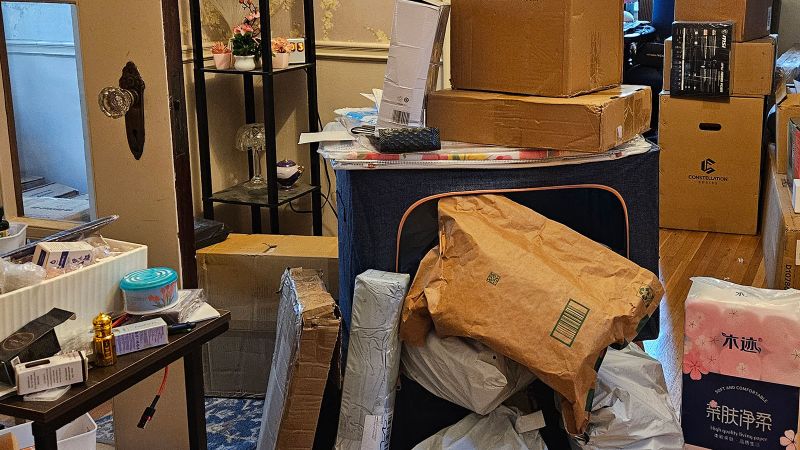Rena Scott, a retired registered nurse in Virginia, typically maintains 10 to 12 active Temu orders at any given time. The 64-year-old has purchased almost anything imaginable from the Chinese website. She currently has four shirts in her cart and regularly buys crafting items like yarn and beads, along with household items ranging from rugs to furniture. For Scott, shopping on the site is a ‘no-brainer.’ ‘Everything here has come in from overseas anyway, so you’re just cutting out the middle man, like the Walmarts, the Amazons,’ she said. Millions of Americans have turned to Temu and Shein for their low costs. Chinese exports of low-value packages surged from $5.3 billion in 2018 to $66 billion in 2023, according to a congressional report. However, President Donald Trump’s trade war is now affecting those who rely on these relatively cheap Chinese products. He imposed 145% tariffs on imports from China and a 10% minimum tax on all other countries. The ‘de minimis’ exemption, which allowed goods under $800 to enter the U.S. duty-free, is set to expire on May 2. In anticipation of new tariffs, Temu and Shein raised prices on numerous items. This means even the ‘cheap products’ driving customers to these sites are no longer affordable. Lower-income households will be most affected by the end of cheap Chinese e-commerce. About 48% of de minimis packages were shipped to the poorest zip codes in the U.S., while 22% went to the richest ones. American shoppers are now stocking up, fearing economic instability. Critics argue that Shein, Temu, and AliExpress lack product safety and labor protections, and encourage overconsumption. However, some consumers argue that similar issues exist with American-made goods. The Trump administration insists the tariffs aim to prioritize American manufacturing, but skepticism remains among consumers. ‘The entire idea of tariffs is idiotic, in my opinion,’ one shopper said. — new from CNN
